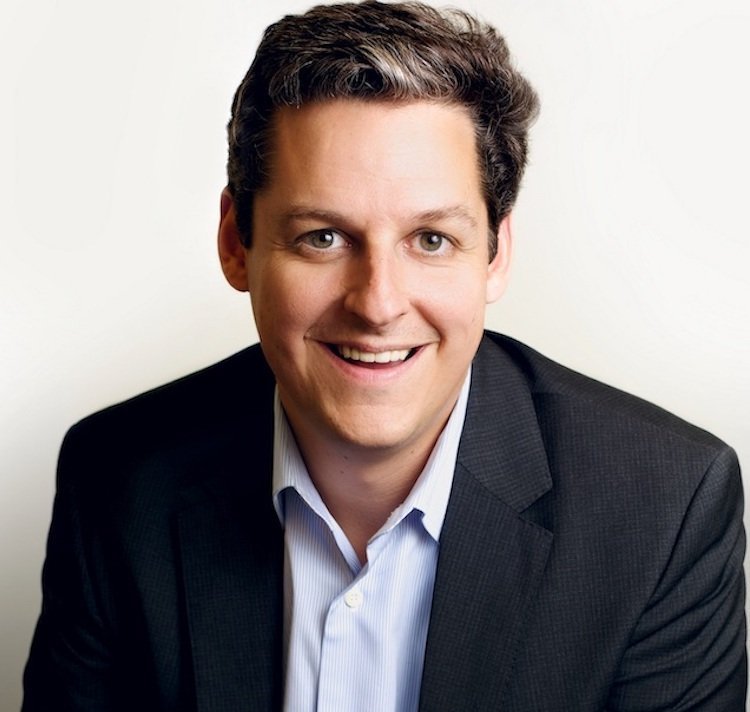How to Fix the Google-Facebook Duopoly Over Digital Advertising: Insights From Jason Kint
Center for Journalism & Liberty reporter Karina Montoya talks with a media industry leader about publishers' and regulators' efforts to reshape the future of digital advertising, and the challenges the come with curbing Google's and Facebook's surveillance advertising.
This interview is part of Open Markets’ Clearly Speaking series.
Google’s and Facebook’s dominance over digital advertising markets continues to grow with increasingly dire consequences for the financing of independent journalism. Publishers now face additional daunting challenges with developments such as Google’s phaseout of third-party cookies to shore up its own user tracking on the Web, and Apple’s new iOS ask-first data-tracking system.
To get a take on what it all means, Open Markets sought out Jason Kint, CEO of Digital Content Next, the trade association serving 57 major media companies, and hundreds of brands, that include dailies, Bloomberg, AP and PBS. In this interview with Kint, who serves as an adviser to the Center for Journalism & Liberty, he addresses how antitrust and data policy regulators figure into the future of digital advertising while sharing other insights. Kint’s comments have been edited for brevity and clarity.
On why surveillance advertising not only violates consumer privacy, but also doesn’t work very well for publishers and advertisers:
The market has become out of step with consumers’ expectations around how data is used. At the same time, it overinflates the value of data and of targeting of users and is rigged in favor of two companies, Google and Facebook — which I’ve historically called the duopoly. The digital ad market is neither delivering fair value to the companies investing in creating trust in news and entertainment, nor serving the advertisers’ needs to build desire and demand for their brands in the long term.
On how publishers need to transition to a web with more privacy protections:
To meet consumers’ expectations, research shows that we need first need to ensure that their data is used only in the context they gave the assent to. No one should use my data for other purposes downstream. The European Commission’s GDPR [General Data Protection Regulation] and California law, if properly enforced, are aligned with this. This approach should boost a virtuous cycle that creates value for the user, the publisher, and advertisers.
Second, integrate data privacy policy in antitrust analysis. Because if you’re going to have real privacy, you need to deal with the giant companies, like Google and Facebook, that have the ability to circumvent privacy laws. Companies that serve as gatekeepers should not be able collect and leverage third- party data that passes through their gates. If you’re a gatekeeper, your data collection and use should be limited only to the services you actually provide yourself — with Google and Facebook being the poster child.
On the European Union’s latest effort to curb the power of digital gatekeepers through passage of the Digital Markets Act:
The DMA will be a positive step forward in reining in surveillance advertising as much as it integrates data policy and competition policy. But a significant hurdle will be avoiding a potentially destructive, if not fatal, loophole, which allows gatekeepers to resume their tracking practices based on a single consent. Lawmakers and regulators around the globe are calling into question the validity of “consent” when it’s provided to, or more accurately seized by, powerful gatekeepers. The champions of the DMA, the whole of industry and government needs to make certain this doesn’t happen.
On other non-Google proposals to replace third-party cookies, including an initiative from publishers:
There is a complex set of proposals out there. Some are easy to dismiss because they protect the status quo. One example is what Trade Desk — the second-largest ad tech demand company after Google — has put forward. It’s an attempt to build a universally unique identifier based on your encrypted email address. It sounds good, but it is still a unique identifier even if your email is encrypted.
Others are truly innovative and help the industry move forward. We are a part of a group called Global Privacy Control, which complies with California law that requires the industry to respond to global privacy opt-outs. With this system, users can have a single setting in their browser or an extension that sends a “don’t track me” signal, and publishers should abide by it. The GPC is being honored now by several publishers, including The New York Times, Washington Post, and the Weather Channel.
On the challenge for brands to step away from surveillance advertising, given its efficiencies in measuring ads:
Advertisers are under a lot of pressure from their shareholders and chief financial officers, who want to know what they are getting out of advertising. The challenge is realizing that there is value outside of ad clicks. For instance, if you search for the new Volkswagen on Google, Volkswagen will probably run an ad across the top of that search. That’s easy to measure. But Volkswagen still spends millions of dollars on TV ads and billboards, at sports events, and other venues. Because that is part of creating a demand and desire for the product.
Advertisers would rather measure everything they can, and Google is fulfilling a key piece in measuring [that] performance. We have to ask ourselves: What is missing in that equation? Is there real competition so that one can negotiate and get proper pricing for those ads? It’s more difficult for the advertisers and for the publishers individually to speak out publicly. That’s why we [Digital Content Next] are so vocal. I don’t think any shareholder wants their company to be in a public spat with Google or Facebook. It’s a challenging position to be in because of their market power. The media industry has never seen anything remotely close to that power.
For more perspective on pressures facing publishers and surveillance advertising, don’t miss the insights from a recent conversation with media scholar Matthew Crain here.

